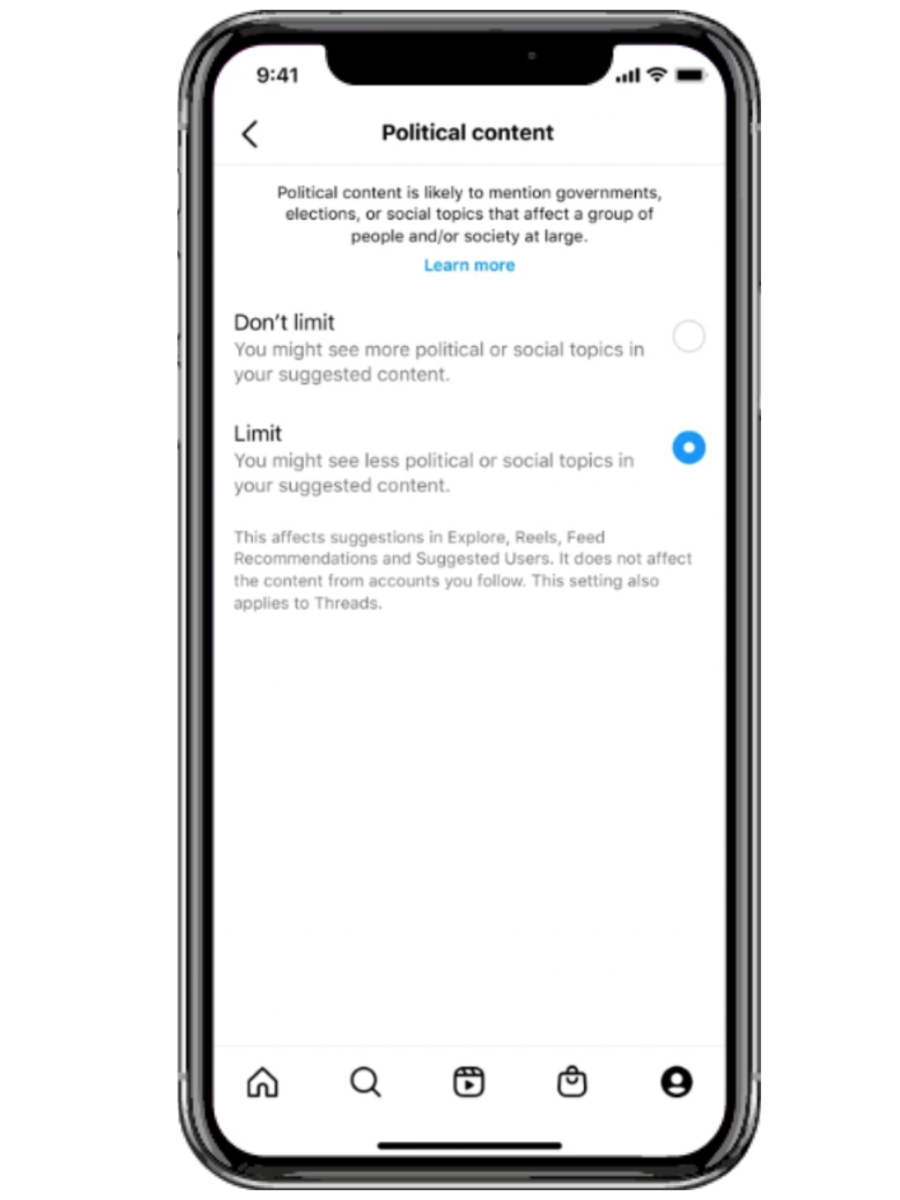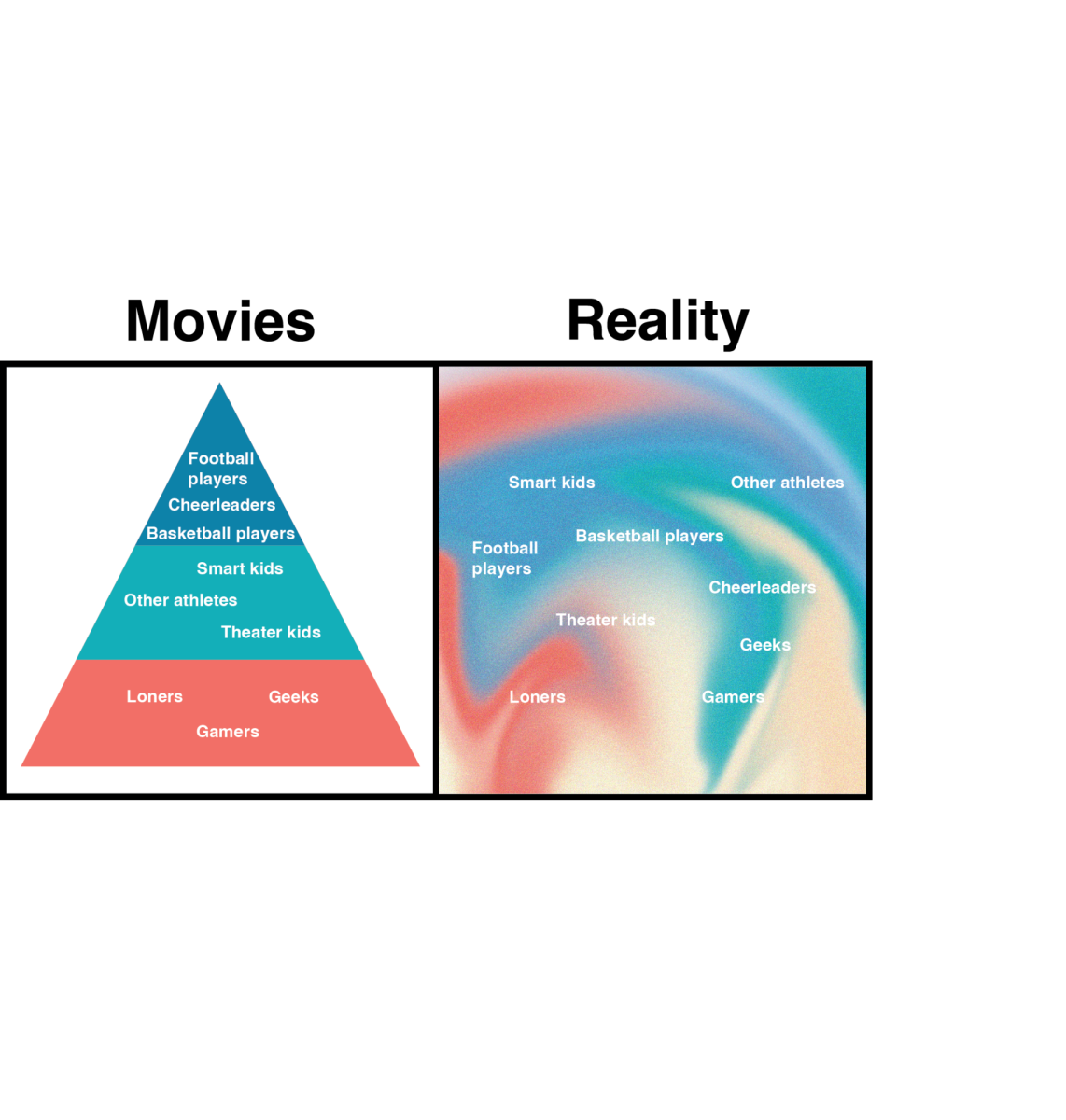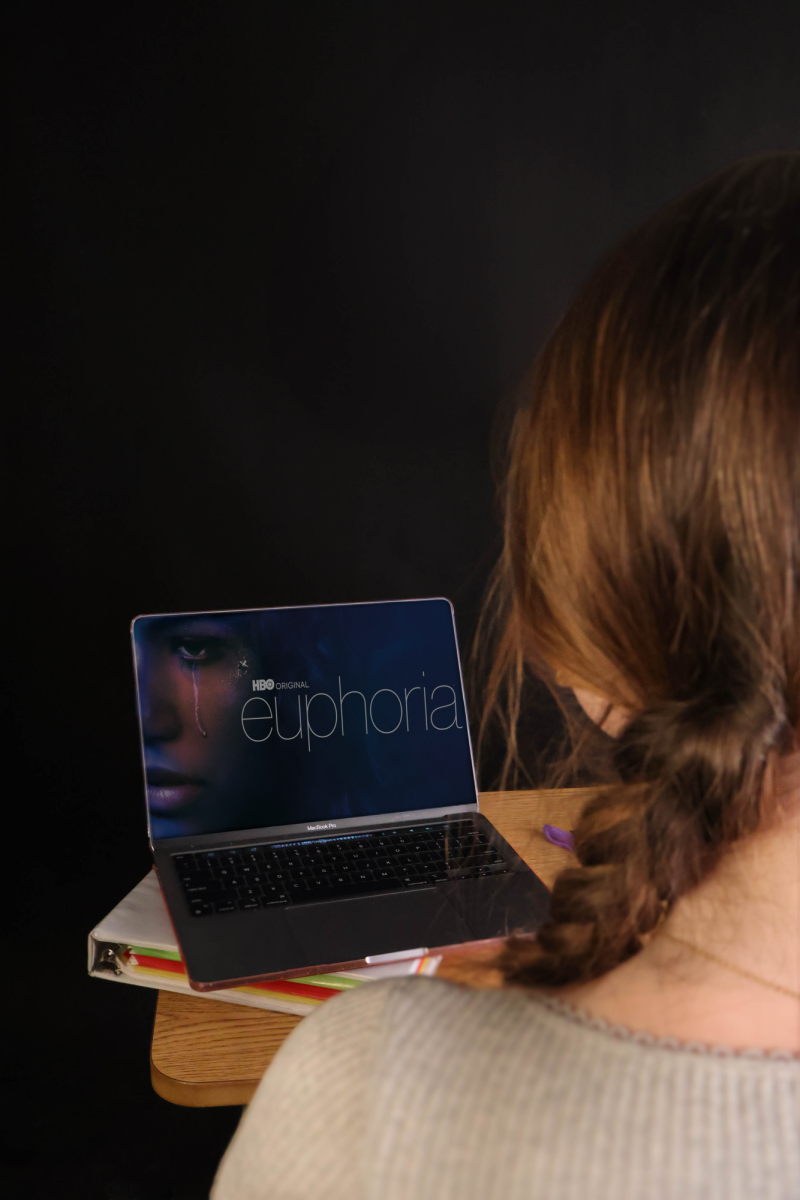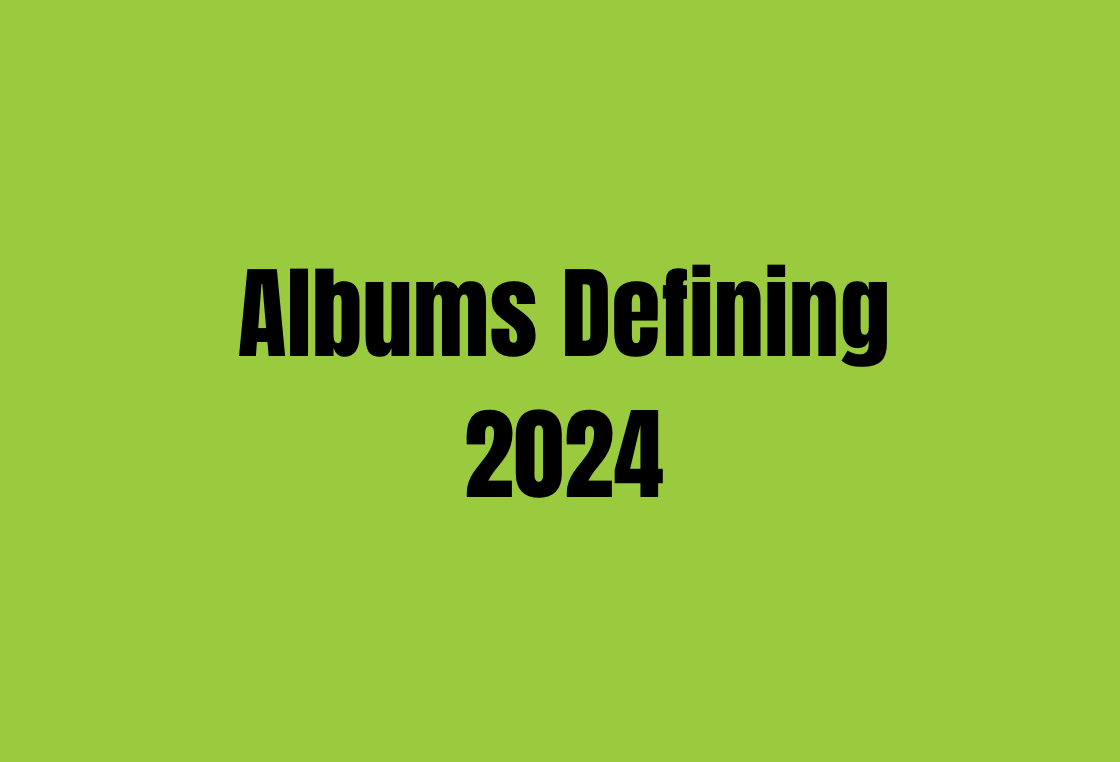In early February, Meta released a statement explaining that Instagram, Threads, and Facebook are limiting political content shown from accounts not followed by users. The setting was set to limit political content by default, with apps failing to notify users about the change. Many were concerned about this change, as it is implemented in the same year as important upcoming elections. Many influencers whose platforms focus on educating users about current events and politics have released step-by-step posts showing users how to opt out of the setting.
Accounts of marginalized communities have called out the act of censorship and expressed that the setting will make their missions of education and empowerment even harder. Despite influencer’s concerns, social science teacher Brandon Burmeister said such changes are completely within the platform’s rights.
“Facebook, Instagram and TikTok are privately owned companies,” Burmeister said. “So they have the right to determine the content that’s on their website. If they don’t want to allow or do want to allow certain things, it’s not a free speech issue.”
According to Meta, the company added this setting to avoid spreading misinformation and accusations of news bias, along with aiming to create a more positive online space. However, the updated setting hinders people who depend on social media to stay up-to-date on current events and today’s political world.
“It could create a problem by filtering out important political news that people might not get otherwise,” Political science associate professor at the University of Florida Beth Rosenson said. “If Gen Z is getting all of your news from social media… I worry about preventing people from learning important things in the news.”
Generation Z (Gen Z) has been the biggest culprit of absorbing information about news and current events from social media. According to a study by the Pew Research Center, 34% of high school-age teens or younger get their news from Instagram. This raises concerns about whether the information is correct. However, despite discrepancies, access to social media makes it the go-to source for information. Rosenson explains issues with news from social media.
“The positive [of social media] is the ease of access, you can just pull something up on your phone, but then there’s also the problem of information overload,” Rosenson said. “There’s [also] a term that scholars use called cocooning where you can just seek out sources that fit with your ideology. One of the dangers is that people will only seek out media that confirms what they already believe, and they’re not being exposed to a different point of view.”
Along with information overload, social media is one of the biggest culprits in spreading misinformation to its users. Users also tend to neglect other credible sources when looking for news.
“The problem is within the diffusion of the manipulation of the media platform,” Burmeister said. “And the diffusion of misinformation and disinformation, which is so easy to do on social media, because there’s no accountability. There’s no fact-checking.”
This issue was addressed in a study done by Dartmouth, where researchers described the importance of acknowledging the discrepancies of bias, and participation bias in social media. Young people are more likely to use social media than the older population, therefore young people’s political views are more likely to be represented, leaving out other groups that are less represented on social media. These bias discrepancies further feed information to social media users, and create echo chambers of only certain views being shared.
“There’s always going to be bias in news sources,” Junior Jonah Downs says. “It’s almost impossible to ignore. When it’s on social media it is amplified because of the way the media is dissected, especially with how they’re trying to grasp your attention.”
Opinions shared by influencers also have a very big impact on social media users. One example is Taylor Swift, who influenced over 35,000 fans to register to vote. She became the topic of many news articles questioning whether she could influence the 2024 elections. In an article by Berkeley News, Taylor Swift is described as a highly influential role model, who, with even a small endorsement, could influence millions of young voters.
“Even though I try not to listen to celebrities because I don’t think they necessarily know what they’re talking about when it comes to politics,” Rosenson said, “Taylor Swift, I think is the best example if she said something about her political views, I think a lot of people would listen and they trust her. They like her. They believe in her so they would take what she has to say pretty seriously.”
Taylor Swift along with so many other celebrities and influencers has a lot of power when it comes to endorsing candidates and spreading news. This can be extremely problematic for young people, especially those who don’t do further research before voting for a candidate or believing the news they hear. Regardless of issues getting news from social media, Meta’s new default setting will greatly affect young generations.
“I feel like everyone needs all the information they can get their hands on, for better or worse, because that’s the beauty of media,” Downs said.















